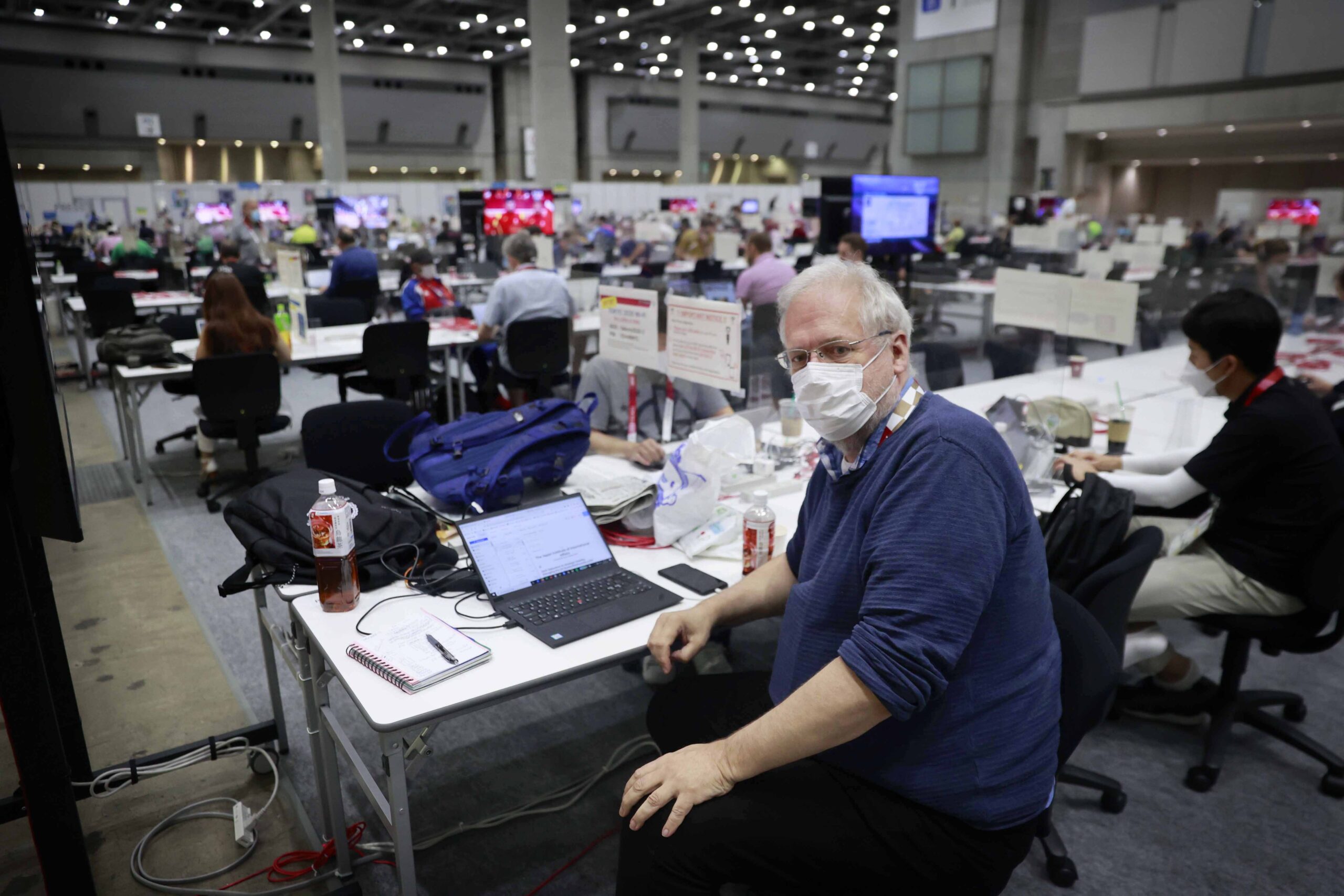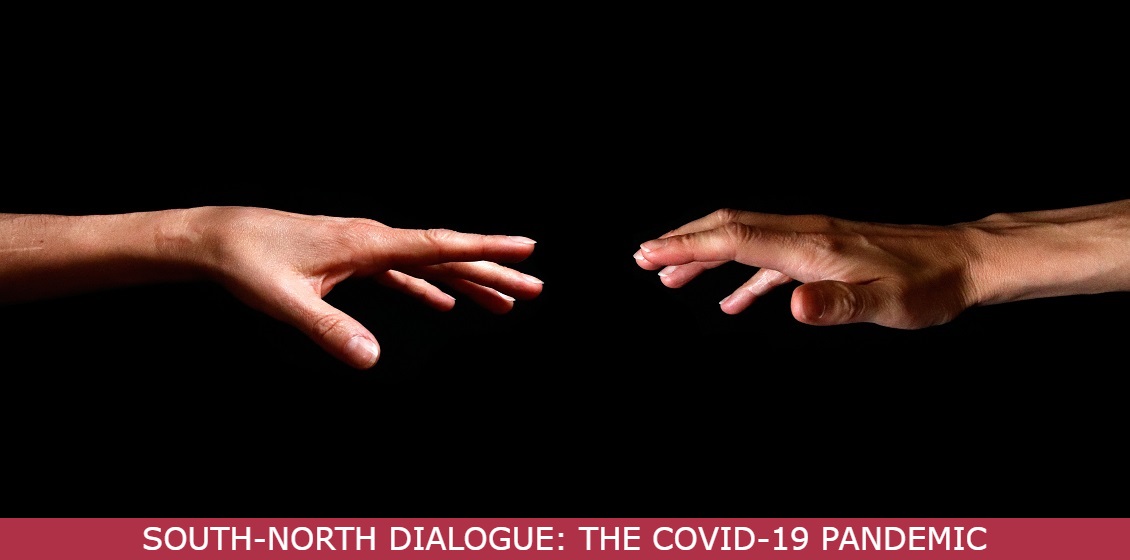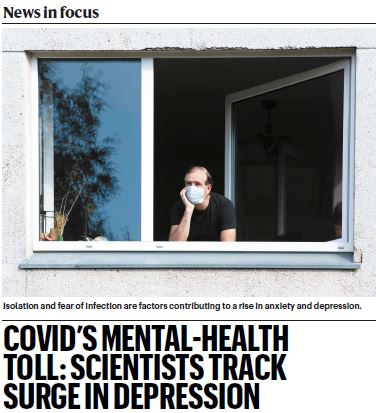Isolation and loneliness during the lockdown has caused depressions and anxiety, especially among young people – but others with psychiatric diagnoses have experienced less pressure and actually felt relieved.
Fear of being infected has forced many people in Denmark with a psychiatric diagnosis to become lonely and isolated. In many instances, it has worsened their condition.
The association Bedre Psykiatri (Better Psychiatry), whose members are relatives of mentally ill patients, has conducted a written survey among its members. 13 percent answered that the corona-situation has ”worsened to a high degree” their family member’s condition, and 33 percent answer that the condition worsened ”to some degree” the condition.
Frederikke Møllgaard, analyst at Bedre Psykiatri, adds to these figures that 43 percent of the participants in the survey point at fear of becoming infected as the main reason for the isolation and loneliness, felt by their family member.
”Unfortunately, we don’t have any overview that shows a pattern in whom are the hardest hit mentally and which cultural background they come from”, she says.
Apart from this modest survey, research in to the field has so far been relatively limited. A number of observations and surveys have taken place, some numbers are public, but very few conclusions.
An expert panel, appointed in March 2021 by Danske Regioner, the cooperation body for the regional entities responsible for public hospitals, has explored the consequences of the covid-19 restrictions for health and well-being of the Danish people. They have had focus on among other issues the mental health in the country during the crisis. One of the five workshops, held by the expert panel, had psychiatric illnesses and mental health as its headline. In line with the Bedre Psykiatri survey, the working papers from this workshop point at loneliness as a contributing factor to the problems that were indeed felt in many families.
This feeling of loneliness has to a degree been unavoidable. All vulnerable groups, including those who were already mentally ill, were from the beginning asked by the authorities to stay home, seriously preventing these people and their close relatives from going out and meeting other people. Later, the Danish health authorities clarified that the mentally ill did not have any special risk to become infected compared with other citizens, but the worries were staying on among patients and their relatives.
Among elderly with mental problems, it was certainly not helpful that the inhabitants at nursing homes were exposed to very strict limitations concerning when and where they were allowed to receive visitors from outside the institutions. It worsened the feeling of loneliness considerably.
Those who are staying with their family also lost much of the support and assistance from visiting professionals which they were used to receive, which were bad for their own as well as their close family members’ mental and physical health.
The expert panel also focuses on the consequences of the pandemic on younger people’s mental health. It is worsening as well, but the panel finds it hard to distinguish between a general worsening which has been underway for some years and a specific worsening because of Covid-19. In other surveys – look below – it is argued that the effect on young peple generally has been worse than the effects on elderly.
The expert panel, however, reminds us that for some mentally vulnerable groups the corona restrictions have actually improved their situation. They have been secured more closeness with their closest relatives and they have met fewer demands from the outside world – and thus they have got more of a feeling of security throughout the day. Staff at hospitals and nursing homes are quoted by the expert panel for having observed that some of the patients and inhabitants actually have benefited from the peace and quietness around them that the restrictions on visits led to.
These observations are confirmed by Mia Kristina Hansen, the chairperson of SIND, a Danish NGO which fights for the well-being of the mentally ill. Mia Kristina Hansen is also herself a staff member of the social-psychiatric services.
”The effects were mixed, good for some, bad for others. Some had indeed benefit from it. Suddenly, the society around them became quieter and less demanding than before. They felt less pressure, and suddenly they could relax”, she explains.
”Also, suddenly they could receive help from a doctor online. Earlier some of them had a very hard time getting out of the door and up to the doctor”.
In August 2021, however, the expert panel, appointed by Danske Regioner, wrote: ”It is not possible at this point to judge whether the mental health of the population will return to the same level as before corona, when the vaccination effort is completed, or whether those people who have been hit by a feeling of loneliness and worsening well-being will suffer from worsening mental health in the long run”.
Surveys in other parts of the global north suggest that three factors explain the worsening conditions of many people with mental illnesses during the pandemic and its strict quarantines and even the surfacing of illnesses for people who haven’t had that kind of diagnoses earlier.
One is, as mentioned, the isolation and loneliness which the ”Stay Home”-restrictions forced upon all of us.
Another is the fear of getting infected oneself. Some of the already ill people panicked. If they suffered from anxiety already, this condistion very often worsened.
”In many cases, these two factors are in play at the same time. The two things are running besides each other in the minds of many people who suffer from mental illness”, explains Mia Kristina Hansen.
The third factor in play is paradoxically more or less the opposite of loneliness. In many families, members might have been used to live their lives apart for most of the day, allowing everybody to be alone. But now, everybody were suudenly forved to stay together all day long, often under cramped conditions. That created irritations, strife and also domestic violence, which have put extra mental pressure on all members of the family.
Around the world, an increased number of cases involving physical or mental violence betewen husband and wife have been registered. But in many other cases, the children were the immediate victims, says Mia Kristina Hansen.
”In some families, the free space for the cildren is when they go to school and attend interest groups in their free time. But suddenly this free space had disappeared. At the same time the free space of the parents also disappared. They needed this break when the children were in school to charge themselves to become good mothers and fathers the rest of the time. The relationship between parents and children were tested, and for some hidden psychiatric problems were surfacing”.
I the long run, an ambitious research program, called Coronaminds, an interdisciplinary cooperation at University of Copenhagen, is expected to present the major mapping of the consequences of the pandemic for mental health in Denmark. Researchers from medical as well as social sciences are involved.
However, in contrast to the Bedre Psykiatri survey and the workshop report fra the expert panel at Danske Regioner, the focus of the Coronaminds research has so far been aimed at the mental health situation among the general public, not specifically those with existing diagnoses within the field.
So far, among other reports, the result of a specific survey about the ”psycho-social health” among people with diabetes during the first few months of the pandemic has been published on the coronaminds.ku.dk website.
It was conducted by researchers from Steno Diabetes Center Copenhagen and Institute for People’s Health at University of Copenhagen. 1366 persons responded to six questionnaires between March and June of 2020.
The main findings are that the levels of worries, feelings of being socially isolated, the general quality of life, psychological stress, anxiety and general loneliness were very serious at the beginning but most people learned to cope with these problems, so on average these problems became less frequent towards the end of the time span which was surveyed.
In another report from the Coronaminds-program which was carried out in cooperation with the market analysis company Epinion and published on its website, 250 grown-ups have reported every fortnight between September 2020 and the spring of 2021 whether they felt more or less lonely than before. In March and April 2021 a similar questionaire was sent to more than 10.000 residents in Denmark, healthy as well as ill.
”The gradual worsening of the level of loneliness, which we presented in en earlier report, continued and culminated medio february 2021, at which point more than one out of five reported to feel very lonely”, as it is reported in a report at the Coronaminds-website from April 2021. The researchers behind the survey underline, that the situation in early 2021 actually was worse than during the early months of the pandemic in the spring of 2020. Many people couldn’t cope any longer.
”It was very hard for people with mental illnesses when it just continued and continued, and they didn’t know when it would end. Many people had difficulties with the unpredictabilty of their situation”, as Mia Kristina Hansen puts it.
The loneliness survey from Coronaminds-program also indicated that this increase in the feeling of being lonely in early 2021 was considerably worse among younger age groups. One out of three, 32 percent, of the respondents who were younger than 30 years, felt ”very lonely”, and one out of four, 24 percent, of the respondents between 30 and 45 years old felt the same. The same figure for the oldest age group was only 12 percent.
”We found the highest degree of loneliness among young people and among people who had earlier been hit by mental illnesses”, explains assistant professor Tibor V. Varga from Institute for People’s Health at University of Copenhagen at the Coronaminds website. ”Mental stress is an important risk factor in relation to long-lasting and serious mental illness. Therefore, it’s important to know how the lockdowns affect us, so that we can better prevent long-lasting consequences”.
The apparent fact that younger age groups are hardest hit has several explanations.
Based on similar studies in other countries in the global north, Alison Abbott wrote in February 2021 in the science magazine Nature, that ”studies and surveys conducted so far during the pandemic consistently show that young people, rather than older people, are most vulnerable to increased psychological distress, perhaps because their need for social interactions is stronger”.
”I believe it is worse for young people, because they are young”, Mia Kristina Hansen adds to this explanation. ”Older people have experience, but young people are in the middle of something and cannot get on with it, and they have never tried before to be stopped like that. Young people need a social life more than others, because it is part of their shaping of an identity”.
Another research project within the Coronaminds program which are already presented at the website and in several newspaper articles is thus focusing directly on whether the Corona lockdown has had negative effect on young people, especially young peple who alreday have a mental illness. It is based on surveys among young Danes, made during the third week of the lockdown in April 2020.
Also here, the main conclusion was that young people with an existing mental illness were clearly more lonely than those with an earlier history of mental illness, and those without any such diagnoses were the least lonely.
”We have a group in society that from the beginning feel lonely, stigmatised and without any help – and then, on top of that, comes the corona. I don’t think we have seen yet which impact this will have in the end. Many people have anxiety, and many more have gotten it. Many of them haven’t dared to leave their apartments yet, their nerves are not settled yet. In my observation, we are still in surviving mode”, says Mia Kristina Hansen, chairperson of SIND.
Live webinar: The impact of Covid-19 on the mentally ill
Time: Wednesday 24 Nov.2021, 9:30 am (GMT+1)
Presentations from Uganda, Chile and Denmark. Place: Zoom, Register by e-mail: info@ddrn.dk
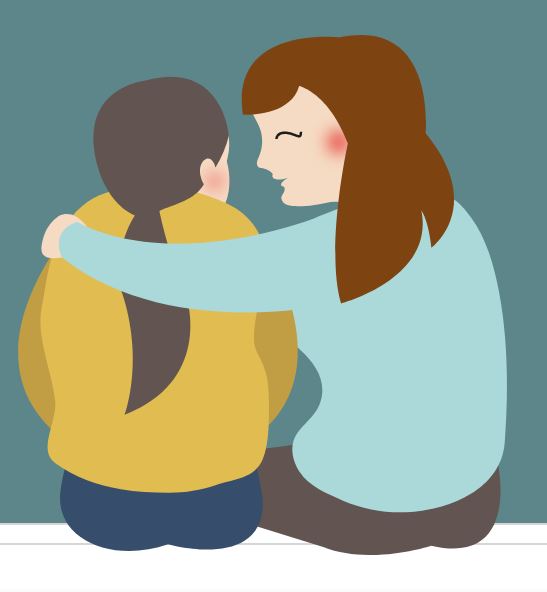
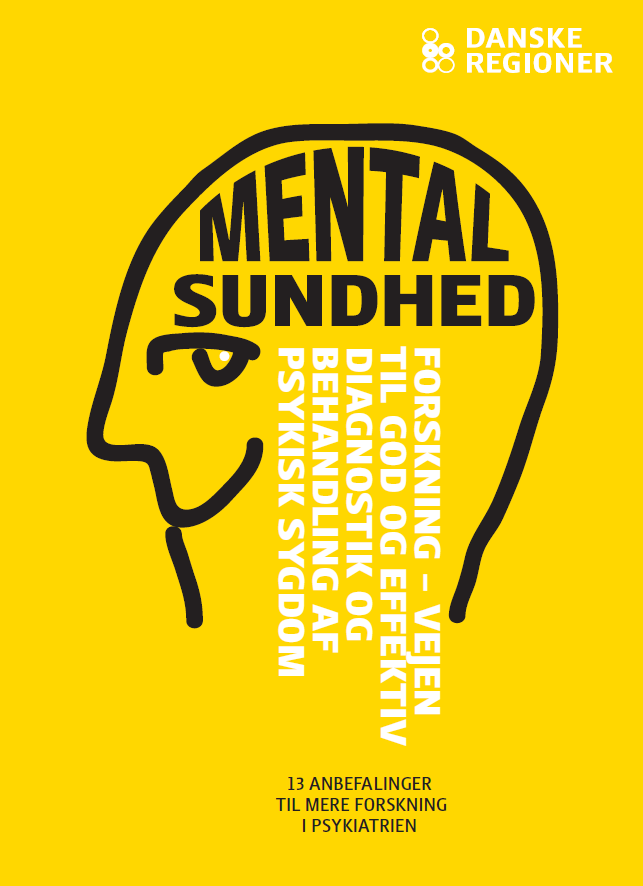
How Danes are living with the corona crisis
This research project aims to explore how the COVID-19 pandemic and the preventative measures being implemented in Denmark affect worries, loneliness, quality of life, social interactions, and people’s daily lives. By documenting these effects as they are happening, we can learn a great deal from this public-health crisis. This project is a citizen-driven initiative, so emphasis is placed on continuous, direct feedback from the public.
It is also important to investigate the effects of the pandemic and various public-health measures on mental health in different countries, and we hope our data can contribute to future analyses of mental-health developments over time and across national contexts.
